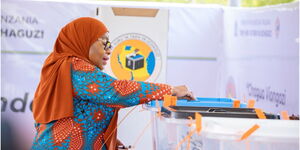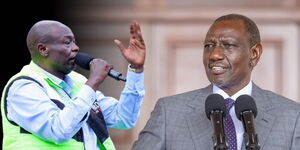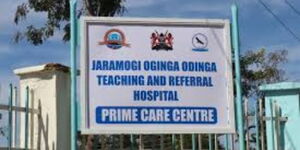President William Ruto on Wednesday defended the government’s mandatory deductions toward the national social savings scheme, primarily channelled through the National Social Security Fund (NSSF).
Speaking during the installation of Kenya’s youngest Vice Chancellor at the Co-operative University in Karen, Ruto said the government was targeting Ksh1 trillion in savings over the next two years.
“From independence to 2023, we saved Ksh320 billion — that’s over 60 years. But in just two years, we have saved Ksh280 billion. By the end of this year, we will have doubled what we saved in six decades,” Ruto stated.
He credited the growth to bold policy decisions by his administration, noting that increased savings were a critical pillar for national development.
The president emphasised that the savings would reduce Kenya’s reliance on debt and allow for more homegrown investments.
“By 2027, our national savings will hit Ksh1 trillion. This is the direction a serious country must take,” he added.
Ruto drew comparisons with the neighbouring countries like Uganda and Tanzania, arguing that they were doing well on their development agendas due to their strong savings cultures.
''Savings is a very important component of any meaningful progress of a country. Savings as a percentage of GDP in Kenya today are between 10 and 12 per cent. The same if you compare with China; theirs is 65 per cent,'' Ruto stated.
Kenyans have collectively saved an additional Ksh220 billion in the National Social Security Fund (NSSF) since the implementation of higher contribution rates in February 2023.
The higher deductions have accelerated the growth of the State-backed national pension scheme, pushing its total assets close to the Ksh600 billion mark, two years ahead of schedule.
With such a large pension pool, the government can tap domestic financing more easily. Though NSSF assets cannot be pledged as literal collateral, higher NSSF savings mean there is a deeper, ''captive'' pool of local capital to buy government bonds.
The NSSF Act, 2013, entered its third phase in February this year, doubling monthly contributions from a maximum of Ksh2,160 to Ksh4,320. This marked the second major increase in contributions since the reform took effect.












